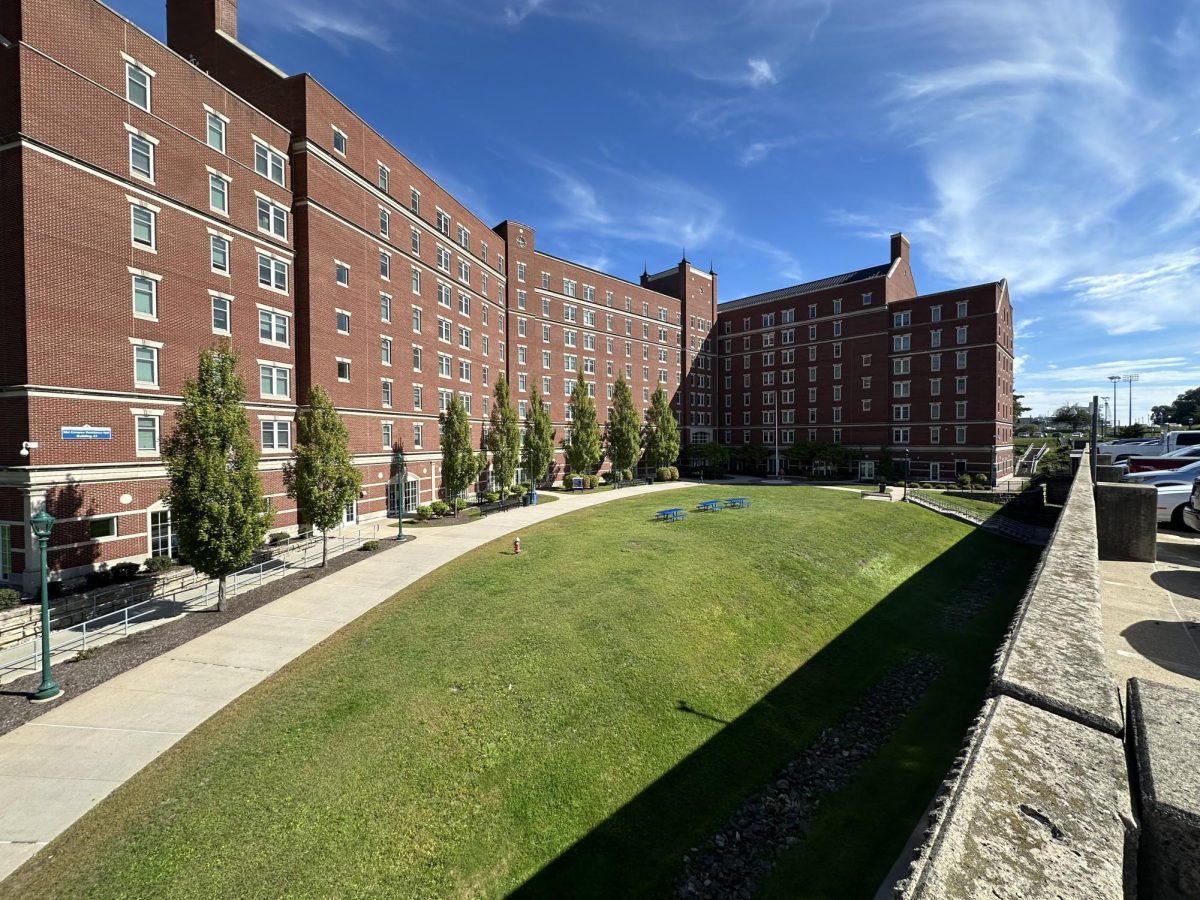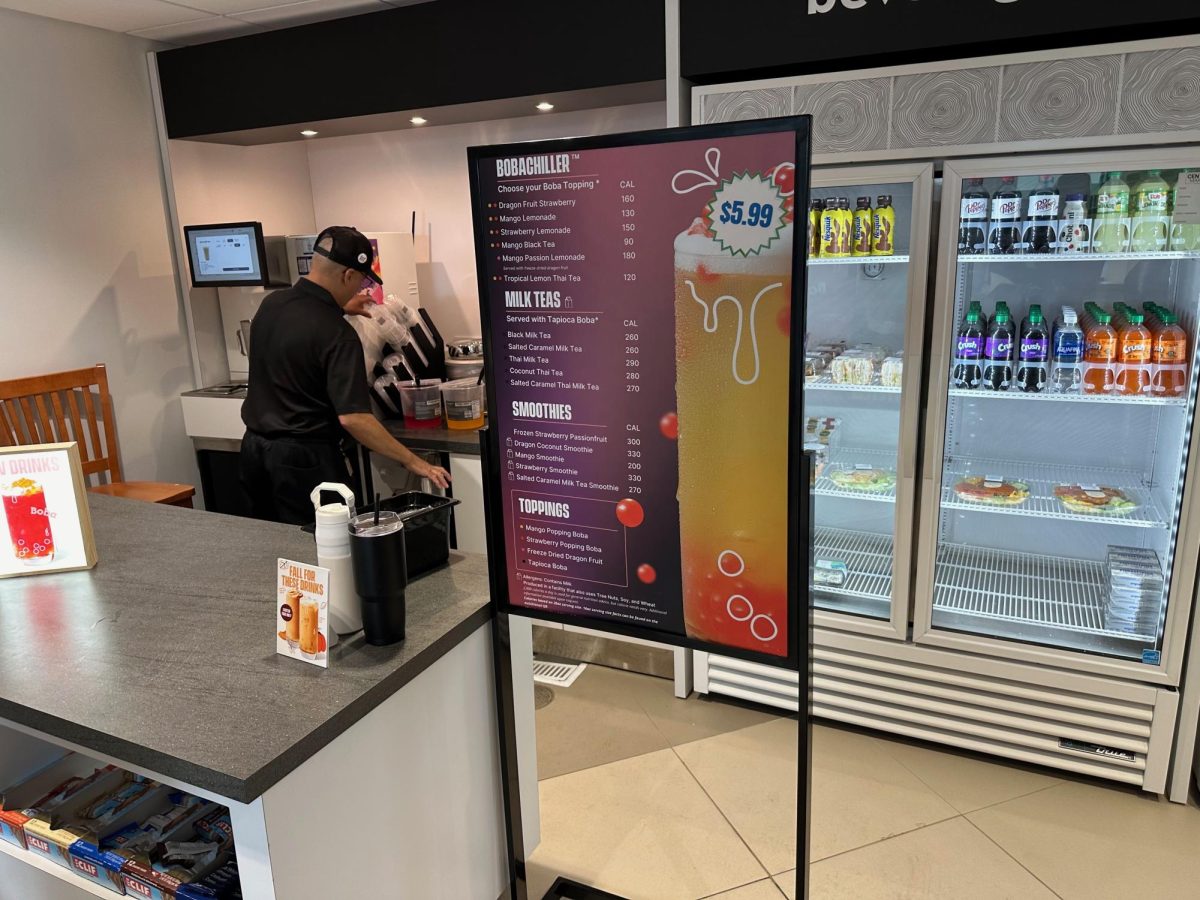By Jacqueline Stoughton
Students return to a campus that now caters to non-smokers through the creation of new smoking stations around campus. The university hopes smokers on campus will voluntarily use them to smoke.
Smoking centers are located sporadically among the grounds: Diloreto-Willard Hall parking lot, near Copernicus Garage, between Welte Hall and the Student Center and Kaiser Lot are the areas that students and faculty must be when smoking.
Each smoking center is designed to protect students from the elements and is clearly marked so smokers know where to find them.
“I’m unsure about how successful this will be because it’s not like every student is constantly smoking so I don’t think it’s going to make any difference,” said Kristee Bisson, a student at CCSU. “I don’t think there’s going to be any more or less smokers on campus than we had before.”
“In keeping with the University’s goal to provide a safe and healthy work environment, and in conformance with Connecticut’s General Statute 31-40q(d), smoking is prohibited everywhere on the campus other than in four designated areas,” states CCSU’s official smoking policy. “This policy applies to students, employees, contractors, and campus visitors.”
Despite the impression this statement is giving most students, Dr. Christopher Diamond, Director of Health Services insists that smoking on campus isn’t necessarily “prohibited,” but rather is intended to be a voluntary action.
“The president made it clear that it’s not going to be enforced it’s requested to be voluntary,” said Diamond. “I’m not a fan of prohibition so I don’t think that if your goal is to get people on campus who are smokers to be non-smokers. Prohibiting smoking on campus will not achieve that end.”
In President Jack Miller’s address, prior to the start of the semester, he explains how this approach seemed to best reflect the sentiment of those responding to the surveys that were conducted on those attending CCSU last year.
“I hope this is not a ‘rule’ which requires ‘enforcement,’ but rather is one with which we all voluntarily comply,” said Miller in his statement. “It may take a short time of transition for people to remember our new policy. If you see anyone violating our policy, remind them in a courteous way that there are only limited places where smoking is allowed.”
Eliminating the amount of second hand smoke is a major goal of the new smoking policy. Diamond explains how we don’t often think about how second hand smoke can affect others, such as triggering heart and asthma attacks to those who are especially vulnerable.
“When you are around a person who is smoking, you inhale the same dangerous chemicals as he or she does. Breathing second hand smoke can make you sick. Some of the diseases that secondhand smoke causes can kill you,” states the Surgeon General’s warning on second hand smoke. “There is no safe amount of secondhand smoke. Children, pregnant women, older people, and people with heart or breathing problems should be especially careful. Even being around secondhand smoke for a short time can hurt your health. Some effects are temporary. But others are permanent.”
“Secondhand smoke is actually worse for you than cigarettes it definitely could trigger some sort of health issue in someone,” said Bisson. “So in that sense, yes I think this new policy is a good idea.”
Diamond explains that he hopes the students will look at this in a positive light, which could lead to opportunities organized by the university to help guide students to a smoke-free life. Although as of now, there are no such official plans.
“There needs to be more education about the effects of secondhand smoke,” said Diamond, who believes that if CVS, one of the biggest pharmacy chains in the U.S., has stopped selling tobacco in their stores by October 1st, anyone can do the same.
“I think it would be so cool if we had a smoke-free campus through voluntary wellness activities and health improvements and with consideration and understanding of others,” said Diamond. “If we looked at others rights instead of our own first, and the wellness of others before our own, it’d be a pretty amazing thing.”
Categories:
CCSU Takes First Steps to Becoming a Smoke-Free Campus
September 11, 2014
0


